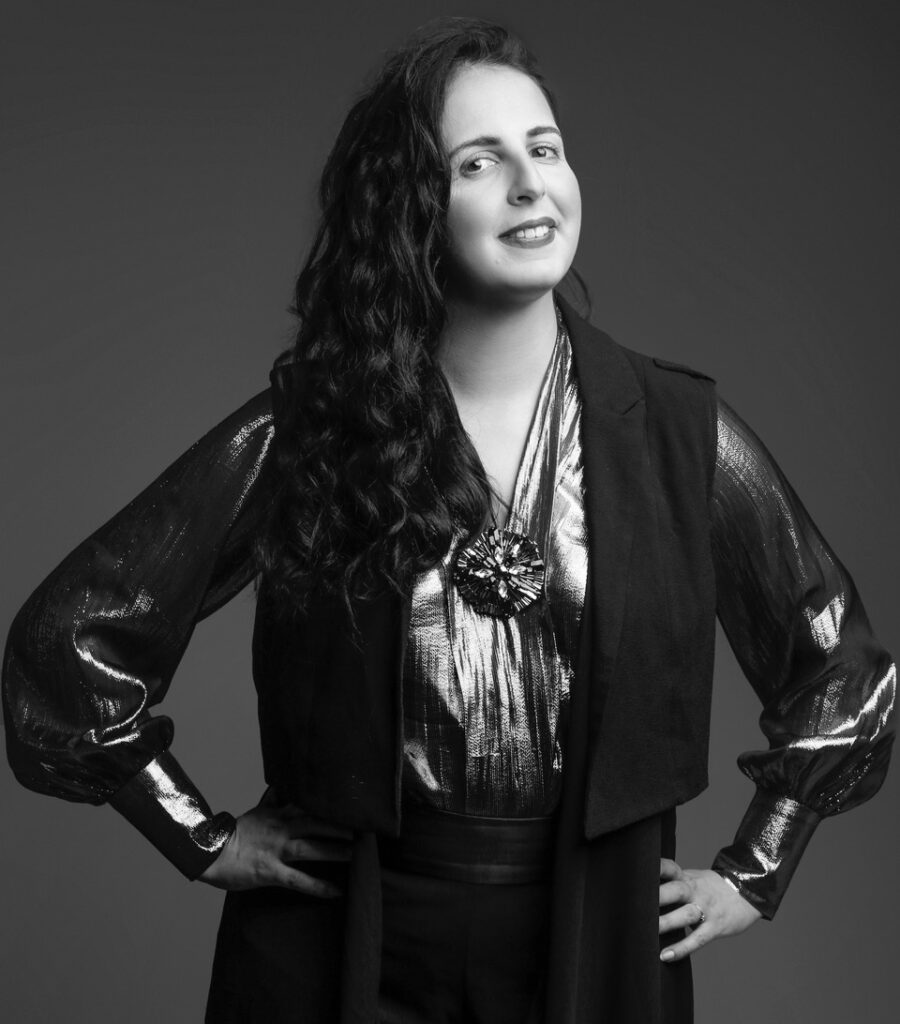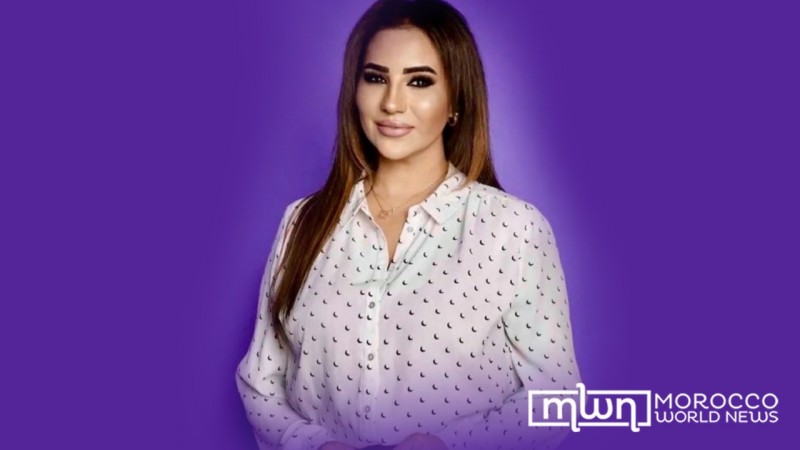This January, Sara Chraibi, founder of Maison Sara Chraibi presented for the first time at Paris Haute Couture Week. The Moroccan designer greatly impressed critics with her collection which combines traditional Moroccan craftsmanship with modern elements and materials for a unique style that celebrates her heritage but also appeals to the contemporary woman.
After living in Paris and working as an architect for several years, Chraibi returned to her home country to establish her fashion brand. It was a major shift in cultures but she wanted to be in her homeland in order to find ways to embrace the traditional craftsmanship techniques and find new ways to express this as a form of contemporary luxury. Her designs are deeply rooted in traditions but also appeal to the wider world. This season Chraibi presented her Spring/Summer 2023 collection at Paris Fashion Week after being invited by the Fédération de la Haute Couture et de la Mode to showcase her designs to the world. Here we find out more about the experience and what we can expect to see from her brand moving forward.
Tell us a little about how your brand came to life.
I grew up in an environment of art and culture. As a child, I was introduced to sewing and embroidery by my mother. After my architectural studies in Rabat, I moved to Paris where I wrote a diploma (DEA) in “Philosophy and Theory of Architecture”. In Paris, my passion for fashion and couture is nourished by the vitality and creativity of the city. Alongside my job as an architect, I then began to draw, sew and embroider a multitude of couture pieces.
In 2012, I presented my first collection “Anatomic Architecture” during the final of a Competition organized by “Ateliers de Paris”. In the same year, I participated in Festimode Casablanca Fashion Week where the models paraded in front of the Casablanca cathedral. Greeted unanimously by the public and the press, these first appearances were the beginning of my professional retraining.
Congratulations on the Spring/Summer 2023 collection – tell us about this collection and how it came to life.
When I started working on this collection, I wanted to share several elements of my personal story, my influences and my sensitivity to the world. I had this idea of weaving a collection where each thread would represent part of the story: beginning with the architecture, the relationship to the structure of the garment, then there is the know-how, coming from a Moroccan textile tradition and the memory of the elegance of Moroccan women, there is this double culture that makes the originality of my point of view on fashion. I wanted to weave all this together and make it into a framework to tell a new reality.
This was your first time showing at such a level tell us about your experience being a guest member of the FMHC.
For me, Haute couture is a dream, a celebration of uniqueness and being part of it as a guest member is a milestone for my brand.
Can you tell us about some of the traditional techniques that you used in your designs and how you have evolved the techniques and craftsmanship to give them a modern twist?
With my work, I take patterns, shapes and ancient techniques from Morocco but I add a certain twist or reinvent them in a new way. For example, I used the “sfifa” weaving technique to create a fabric rather than using it as an ornament, as is done traditionally. I mixed raw materials from Morocco, and I used golden thread and silk fringe to build garments as a link between two cultures and realities. I see traditional craftsmanship both as an inspiration and a call to innovation.
How do your heritage and upbringing influence your work today?
My brand is built around the Moroccan art of living, my architectural background and my interest in couture know-how inspire it. My brand aesthetic evolves around the idea of subdued femininity. With a timeless approach to eveningwear, I merge the East and West through one-of-a-kind couture garments.
Tell us about your first memory of fashion.
I remember times before my mother had an important party, we would stroll from stall to stall in the markets in search of fabric and she would make dresses from scratch. I would sit next to her and watch her assemble the pieces of fabric one by one and sculpt the garment. At that time I started to collect fabric scraps to in turn sew something for my barbie doll. There was something magical about those moments. As I grew up, I remember my impatience to get dressed for these events; to put on a beautiful dress, to finally be part of the adult world, with all those sophisticated ladies, perfumed, richly adorned in silk and lace, with an appearance that made everyone’s heads turn. The women of Morocco are beautiful and sensual and wearing a caftan is an ancestral tradition, a ritual that is passed down from mother to daughter.
How do you think your background in architecture has influenced your designs and the way you put looks together?
I quickly realised that fashion and architecture could share the same vision. As an architect, I liked the modern period. In my clothing designs, I am influenced by modern architecture. All my attention goes to the purity of the lines, to the elegance and the lightness of the structure, it is a sort of quest for the essential.
What is the vision for your brand moving forward?
For me, succeeding in the world of fashion comprises several essential elements: commercial success, of course, but also and above all, success together as a team to share values and wealth, to ensure that each person in the company grows through their work. There is also a cultural success, where in addition to offering products, a brand manages to permanently establish its universe in the collective imagination. That’s all I want to achieve for my brand.
Who are some of the designers or brands that you admire?
Madeleine Vionnet, Jeanne Lanvin, and Elsa Schiaparelli, all made contemporary fashion history with a feminine point of view. I also admired Lee McQueen’s vision and Azzedine Alaia’s sharpness.
There are few brands from the Arab region that have managed to reach success on a global level – what is your opinion on this and what advice would you give to aspiring designers in the Middle East?
I wish that there are more and more brands with an Arab or oriental DNA on the international scene. Fashion is a great tool of soft power. Each new designer who launches in the region is responsible for spreading our culture to the rest of the world.
In this issue we are celebrating the month of Ramadan, what does this time mean to you and how will you be spending it this year?
Ramadan is one of my favourite times of the year. It’s time to reconnect with our faith. I like to spend it with my family and friends, to celebrate with pride and joy and I also like to share iftar with my non-Muslim friends.
What is next for you this year and for the rest of the year?
I’m working on the Maison Sara Chraibi Fall/Winter 2023 couture collection. I will also launch an e-commerce site later in the year.
What can you tell us about your brand in the Middle East and can we expect to see you here soon?
I plan to do some trunk shows in the Middle East over the coming months. The Middle East is an important market for my brand and It’s very important to establish long-term commercial partnerships there.
source/content: aeworld.com (headline edited) / Lindsay Judge
___________

____________
MOROCCO
